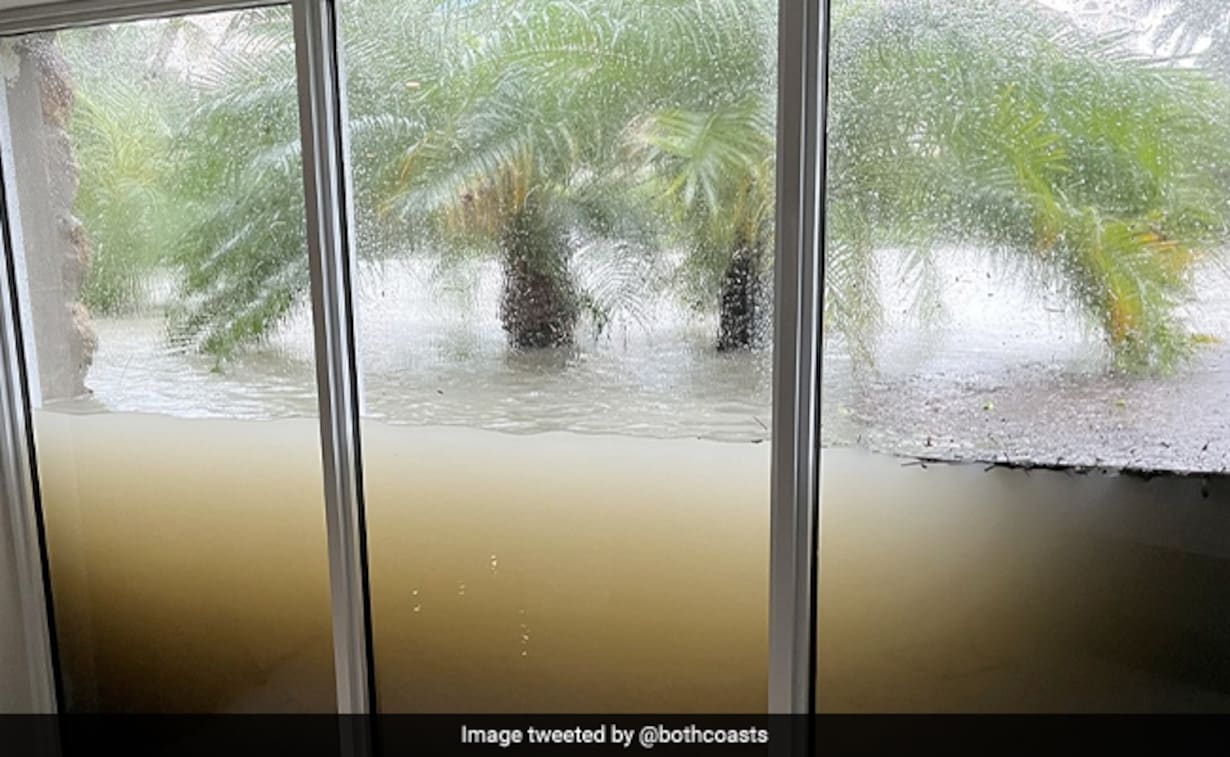Well, that’s a question that many homeowners may have when considering installing hurricane impact windows. We all want to protect our homes from the powerful forces of a hurricane, but are these windows really up to the task? Can we trust them to keep our homes safe and dry during a storm?
In our upcoming article, we’ll dive deeper into the world of hurricane impact windows and explore whether or not they are prone to leakage. We’ll look at the materials used, the installation process, and the various testing procedures that these windows go through to ensure their effectiveness. So, if you’re curious about whether or not hurricane impact windows can truly keep your home watertight, stay tuned for our insightful article. You won’t want to miss it!
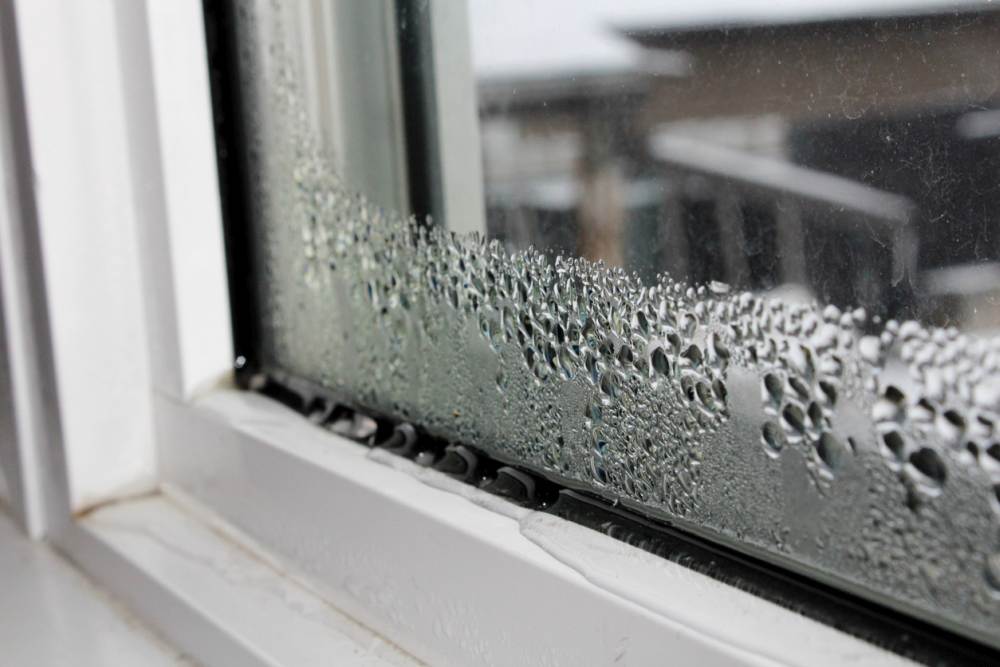
This image is property of oceanimpactwindows.com.
What are hurricane impact windows?
Definition of hurricane impact windows
Hurricane impact windows, also known as impact-resistant windows or storm windows, are specially designed to withstand the high winds and flying debris associated with hurricanes and severe storms. These windows are constructed with multiple layers of glass, laminated with a strong and durable interlayer, typically made of polyvinyl butyral (PVB). This interlayer holds the glass together even if it cracks upon impact, preventing shards of glass from flying into the interior space. The frames of hurricane impact windows are also reinforced to provide additional strength.
How hurricane impact windows are different from regular windows
Hurricane impact windows differ from regular windows in several ways. Firstly, the glass used in impact windows is much thicker and stronger than that of regular windows. This thickness enables the glass to resist the impact of flying debris without shattering. Additionally, hurricane impact windows have a special interlayer that holds the glass together, further enhancing their resistance to breakage. Regular windows, on the other hand, tend to shatter upon impact, posing a significant safety risk. Lastly, the frames of hurricane impact windows are reinforced to provide added strength and stability, whereas regular window frames may not be designed to withstand the force of a hurricane.
Factors that contribute to leaking in hurricane impact windows
Quality of installation
The quality of installation plays a crucial role in determining whether or not hurricane impact windows will leak. If the windows are not installed properly, gaps or inadequate sealing may occur, allowing water to penetrate the window system during heavy rain or storm conditions. It is important to hire experienced professionals who are knowledgeable about the specific installation requirements for hurricane impact windows to ensure a proper and watertight fit.
Design and construction of the window frame and sash
The design and construction of the window frame and sash can also contribute to leaking in hurricane impact windows. If the materials used are of poor quality or if the design does not provide adequate protection against water intrusion, water may find its way through gaps or cracks in the frame, causing leaks. It is crucial to choose high-quality window frames and sashes that are specifically designed to resist water penetration.
Sealant and weatherstripping
The quality and integrity of the sealant and weatherstripping used in hurricane impact windows are essential in preventing leaks. Over time, sealant may deteriorate or become damaged, compromising its ability to keep water out. Similarly, weatherstripping can wear out or become ineffective, allowing water to infiltrate the window system. Regular maintenance and inspections can help identify and address any issues with sealant or weatherstripping before leaks occur.
Maintenance and upkeep
Proper maintenance and regular upkeep of hurricane impact windows are vital in preventing leaks. Failure to maintain the windows, such as neglecting to clean them or inspecting them for signs of damage, can lead to water infiltration. Regular cleaning removes dirt and debris that can accumulate on the window surfaces and hinder proper sealing. Additionally, regular inspections allow homeowners to identify any potential issues and address them promptly, preventing leaks from occurring.
Common causes of leaks in hurricane impact windows
Improper installation techniques
One of the most common causes of leaks in hurricane impact windows is improper installation techniques. If the windows are not installed correctly, gaps or inadequate sealing may occur, allowing water to seep into the window system. This can result in both immediate and long-term damage, as well as potential safety hazards. It is crucial to hire professional installers who are experienced in installing hurricane impact windows to ensure a proper and watertight fit.
Damage to window frame or sealant
Damage to the window frame or sealant can also lead to leaks in hurricane impact windows. Over time, the window frame or sealant may deteriorate or sustain damage, compromising its ability to keep water out. Cracked or broken window frames can allow water to penetrate the window system, while damaged sealant can result in gaps or inadequate sealing. It is important to regularly inspect the window frames and sealant for any signs of damage and address them promptly to prevent leaks.
Weather damage or extreme conditions
Hurricane impact windows are designed to withstand the impact of flying debris and high winds, but extreme weather conditions can still cause damage and lead to leaks. Severe storms with heavy rain, wind-driven rain, or water pooling around the windows can overwhelm the window system, potentially causing water infiltration. While impact windows are highly resistant to leaks, they are not completely impervious to extreme conditions, and precautions should still be taken to mitigate potential damage.
Lack of proper maintenance
A lack of proper maintenance can also contribute to leaks in hurricane impact windows. Failure to clean the windows regularly or neglecting to inspect them for signs of damage can result in dirt or debris accumulation, which can hinder proper sealing and lead to leaks. It is important to establish a routine maintenance schedule that includes regular cleaning and inspections to ensure the long-term performance and durability of hurricane impact windows.
How to prevent leaks in hurricane impact windows
Hiring professional installers
To prevent leaks in hurricane impact windows, it is essential to hire professional installers experienced in installing these specialized windows. Professional installers will ensure that the windows are properly fitted, sealed, and securely fastened to prevent any gaps or inadequate sealing that can lead to leaks. They will also have the knowledge and expertise to address any potential issues during the installation process, such as ensuring proper drainage around the windows to prevent water buildup.
Choosing high-quality window frames and sashes
Selecting high-quality window frames and sashes is crucial in preventing leaks in hurricane impact windows. Opting for well-constructed frames and sashes that are specifically designed to resist water infiltration will reduce the risk of leaks. It is important to choose windows that are tested and certified for their water resistance performance, as these have undergone rigorous testing to ensure their ability to withstand water penetration during storm conditions.
Using proper sealant and weatherstripping
The use of proper sealant and weatherstripping is essential in preventing leaks in hurricane impact windows. High-quality sealant and weatherstripping should be selected and installed correctly to create a watertight seal between the window and the building envelope. Regular inspections should be conducted to ensure that the sealant and weatherstripping remain intact and effective in preventing water infiltration. Prompt repairs or replacements should be carried out in the event of any damage or deterioration.
Regular cleaning and maintenance
Regular cleaning and maintenance are key in preventing leaks in hurricane impact windows. Regularly cleaning the windows removes dirt, debris, and contaminants that can hinder proper sealing and increase the risk of leaks. Routine inspections should also be conducted to detect any signs of damage or deterioration to the window frames, sealant, or weatherstripping. Any issues should be addressed promptly to prevent further damage and potential leaks.
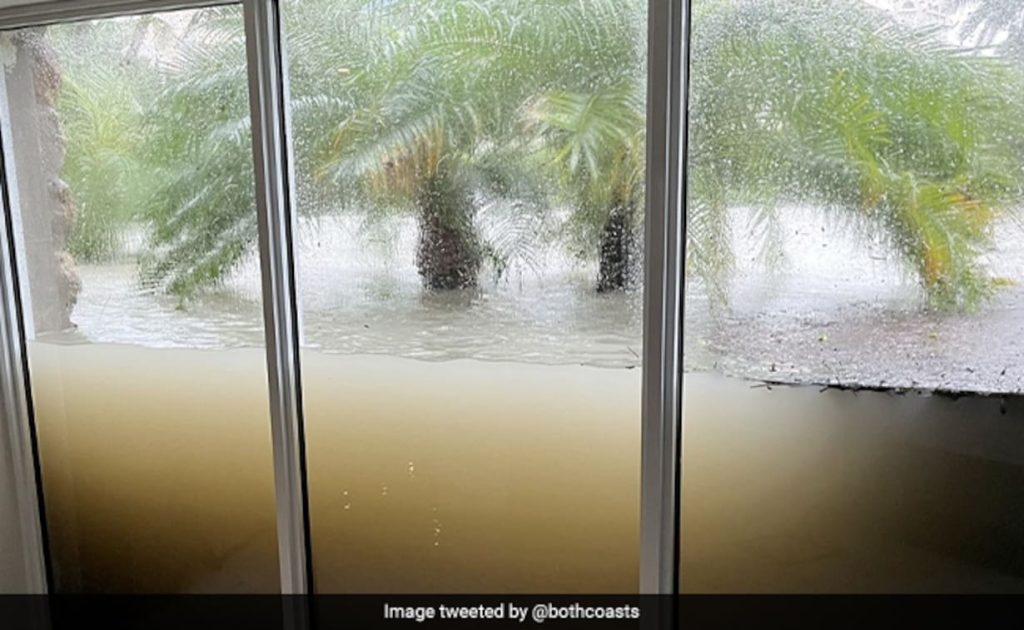
This image is property of c.ndtvimg.com.
Signs of leaks in hurricane impact windows
Visible water damage or staining
One of the most obvious signs of leaks in hurricane impact windows is visible water damage or staining around the window frames or on surrounding walls. Water infiltration may result in discoloration, watermarks, or mold and mildew growth. If you notice any signs of water damage or staining, it is important to investigate the source of the leak and address it promptly to prevent further damage and potential health hazards associated with mold and mildew.
Condensation or fogging between glass panes
Another sign of leaks in hurricane impact windows is condensation or fogging between the glass panes. When water infiltrates the window system, it can accumulate between the glass panes, resulting in condensation or fogging. This can significantly impair visibility and indicate a failure in the window’s ability to prevent water infiltration. If you notice condensation or fogging, it is crucial to address the issue promptly to prevent further damage and ensure the long-term performance of the window.
Drafts or air leaks
Drafts or air leaks around hurricane impact windows can be an indication of potential leaks. If you feel air coming through gaps or cracks in the window frames, it suggests that water may also be able to penetrate the window system. Drafts can lead to energy loss, increased utility bills, and reduced comfort levels within the home. It is important to address drafts promptly to prevent not only water leaks but also the negative effects on energy efficiency.
Insect or pest infestation
Insect or pest infestation around hurricane impact windows can also be a sign of potential leaks. Small gaps or cracks in the window system may provide entry points for pests, indicating that it may also be susceptible to water penetration. Insects and pests can cause damage to the window frames and surrounding areas, as well as pose health risks. If you notice any signs of infestation, it is important to investigate and address the issue promptly to prevent further damage and potential water leaks.
Effects of leaks in hurricane impact windows
Structural damage to the window frame and surrounding walls
One of the primary effects of leaks in hurricane impact windows is structural damage to the window frame and surrounding walls. Water infiltration can cause rotting or warping of the window frame, compromising its structural integrity. Additionally, water can seep into the surrounding walls, leading to mold growth, deterioration of building materials, and potential structural damage. Promptly addressing leaks is crucial in preventing further deterioration and potential costly repairs to the window system and building structure.
Mold and mildew growth
Leaking in hurricane impact windows can create a moist environment, providing ideal conditions for mold and mildew growth. Mold and mildew not only cause unsightly stains and odors but also pose serious health risks, particularly for individuals with respiratory conditions or allergies. It is important to address leaks promptly and thoroughly clean and dry any areas affected by mold or mildew to prevent further growth and potential health hazards.
Increased energy usage and higher utility bills
Leaks in hurricane impact windows can result in increased energy usage and higher utility bills. When water infiltrates the window system, it can compromise its thermal insulation properties, leading to heat loss or gain. This can cause the HVAC system to work harder to maintain desired indoor temperatures, resulting in increased energy consumption and higher utility bills. By addressing leaks and maintaining the integrity of the windows, homeowners can improve energy efficiency and reduce their energy costs.
Compromised security and safety
Leaks in hurricane impact windows compromise the security and safety of the home. Water infiltration can damage the window frames, making them more susceptible to break-ins or forced entry. Additionally, leaks can create wet and slippery surfaces, increasing the risk of slips and falls, especially near entryways. Ensuring the watertight integrity of hurricane impact windows is crucial in maintaining the security and safety of the home and its occupants.
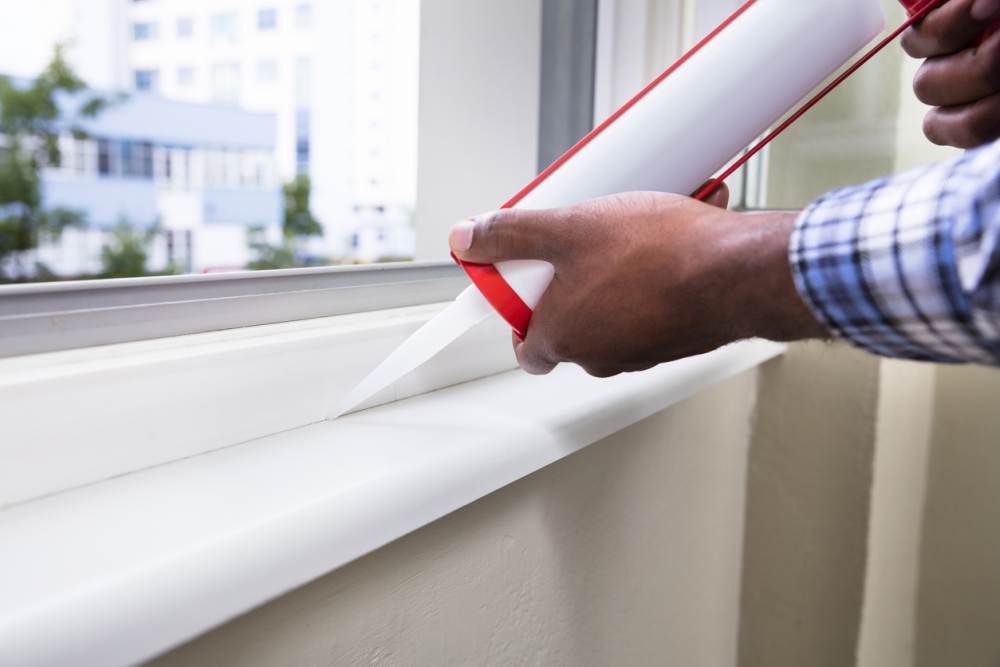
This image is property of oceanimpactwindows.com.
How to detect and fix leaks in hurricane impact windows
Inspecting windows for visible signs of leaks
To detect leaks in hurricane impact windows, it is important to conduct regular inspections for visible signs of water infiltration. Check the window frames, sash, and surrounding areas for any signs of water damage, staining, or mold and mildew growth. Look for cracks, gaps, or damaged sealant that may be allowing water to penetrate the window system. If any issues are identified, prompt action should be taken to address the leaks and prevent further damage.
Using specialized equipment to identify hidden leaks
In some cases, leaks in hurricane impact windows may not be immediately visible. To identify hidden leaks, specialized equipment such as thermal cameras or moisture meters can be used. These tools can detect temperature differentials or moisture levels that indicate the presence of water infiltration. If hidden leaks are suspected, it may be necessary to consult professionals who have the equipment and expertise to accurately locate and address the leaks.
Repairing or replacing damaged sealant or weatherstripping
If leaks are detected in hurricane impact windows, damaged sealant or weatherstripping may be the culprit. Damaged sealant or weatherstripping should be repaired or replaced promptly to restore their watertight integrity. Cracks or gaps in the sealant can be filled with appropriate sealant materials, while worn-out weatherstripping should be replaced with new ones. Proper installation techniques should be followed to ensure a secure and effective seal.
Recaulking or resealing windows
Recaulking or resealing windows is another method to fix leaks in hurricane impact windows. Over time, the sealant used in the window system may deteriorate, resulting in gaps or inadequate sealing. In such cases, the old sealant should be carefully removed, and new sealant should be applied. This process should be performed by trained professionals to ensure proper application and achieve a watertight seal.
Costs associated with fixing leaks in hurricane impact windows
Cost of materials
The cost of materials for fixing leaks in hurricane impact windows will depend on the extent of the damage and the type of repairs required. Sealant, weatherstripping, and other necessary materials can vary in price, and it is advisable to use high-quality materials that are specifically designed for use with impact windows. While the cost of materials may vary, investing in quality products is essential to ensure the long-term performance and durability of the window system.
Labor costs for repairs
Labor costs for repairs will depend on the complexity and extent of the work required. Hiring professional installers or contractors experienced in working with hurricane impact windows is recommended to ensure proper repairs and prevent further damage. The labor costs for repairs can vary, and it is advisable to obtain multiple quotes from reputable professionals to compare prices and services before making a decision.
Potential additional expenses for structural damage
In some cases, leaks in hurricane impact windows may result in structural damage to the window frame or surrounding walls. Repairing or replacing damaged building materials can result in additional expenses. The extent of these expenses will depend on the severity of the damage and the scope of repairs required. It is important to address structural damage promptly to prevent further deterioration and potential safety hazards.
Long-term savings from energy efficiency
While there are costs associated with fixing leaks in hurricane impact windows, there are also potential long-term savings from improved energy efficiency. By addressing leaks and maintaining the watertight integrity of the windows, homeowners can reduce energy consumption and lower their utility bills. The long-term savings from improved energy efficiency can help offset the initial costs of repairs and contribute to greater overall cost savings in the future.
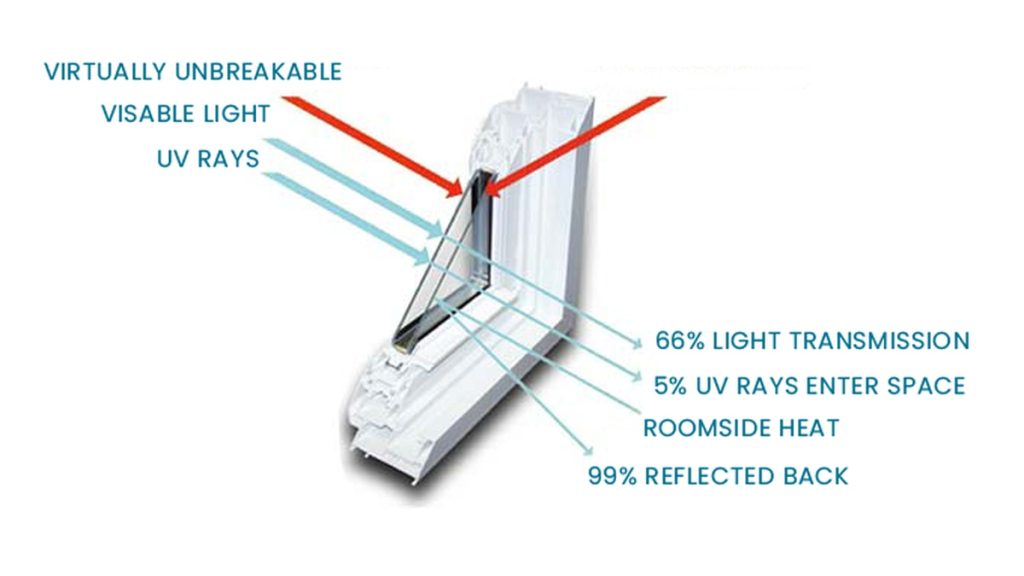
This image is property of gray-wflx-prod.cdn.arcpublishing.com.
Warranty coverage for leaks in hurricane impact windows
Understanding warranty terms and conditions
Warranties for hurricane impact windows typically cover manufacturing defects and performance issues during the specified warranty period. It is important to thoroughly read and understand the warranty terms and conditions to determine if leaks are covered. Certain warranties may exclude leaks resulting from improper installation, maintenance neglect, or extreme weather conditions. Understanding the specific coverage and limitations of the warranty is essential in determining if repairs or replacements for leaks are eligible for warranty claims.
Filing warranty claims for repair or replacement
If leaks in hurricane impact windows are covered by the warranty, filing a warranty claim can help cover the costs of repairs or replacements. Contacting the window manufacturer or the authorized dealer to inquire about the claims process is the first step. Providing documentation and evidence of the leaks, such as photographs or inspection reports, may be required. Following the designated procedures and timelines for filing warranty claims will help ensure a smooth process and increase the likelihood of reimbursement for repairs.
Limitations and exclusions of warranty coverage
It is important to be aware of the limitations and exclusions of warranty coverage for leaks in hurricane impact windows. Certain warranties may exclude leaks resulting from improper installation techniques, lack of maintenance, or extreme weather conditions beyond the window’s specified performance capabilities. Understanding these limitations and exclusions will help set realistic expectations and allow for proper planning and budgeting for potential repairs or replacements not covered by the warranty.
Importance of regular maintenance for warranty validity
Regular maintenance is essential not only in preventing leaks but also in maintaining the validity of the warranty for hurricane impact windows. Most warranties require homeowners to perform routine maintenance, such as cleaning and inspections, to ensure the long-term performance of the windows. Failure to comply with these maintenance requirements may void the warranty and result in the homeowner being responsible for the costs of repairs. Adhering to the recommended maintenance guidelines will help ensure the validity of the warranty and maximize its benefits.
Conclusion
In conclusion, while hurricane impact windows are designed to resist leaks and protect homes from severe weather conditions, they are not immune to potential water infiltration. Various factors can contribute to leaks in these specialized windows, including improper installation, damaged window frames or sealant, extreme weather conditions, and lack of maintenance. However, by taking proactive measures to prevent leaks and addressing any issues promptly, homeowners can ensure the long-term durability and functionality of hurricane impact windows.
Regular inspections, hiring professional installers, choosing high-quality materials, and maintaining proper upkeep are all essential in preventing leaks. Signs of leaks, such as visible water damage, condensation between glass panes, drafts, or insect infestation, should be addressed promptly to prevent further damage and potential health hazards. The effects of leaks can range from structural damage to mold growth, increased energy usage, and compromised security.
Detecting and fixing leaks may involve inspecting for visible signs, using specialized equipment to identify hidden leaks, repairing or replacing damaged sealant or weatherstripping, and recaulking or resealing windows. The costs associated with fixing leaks can include materials, labor, and potential additional expenses for structural damage. However, long-term savings from improved energy efficiency can offset these costs.
Understanding warranty coverage is crucial in determining if repairs or replacements for leaks are eligible for reimbursement. Filing warranty claims, being aware of limitations and exclusions, and adhering to recommended maintenance guidelines will help ensure the validity of the warranty and maximize its benefits.
In conclusion, while leaks in hurricane impact windows can occur, taking proactive measures to prevent and address them will help maintain the integrity and functionality of these windows. By investing in properly installed and maintained hurricane impact windows, homeowners can enhance the safety, security, energy efficiency, and durability of their homes, protecting them from the potential damages associated with severe weather conditions.
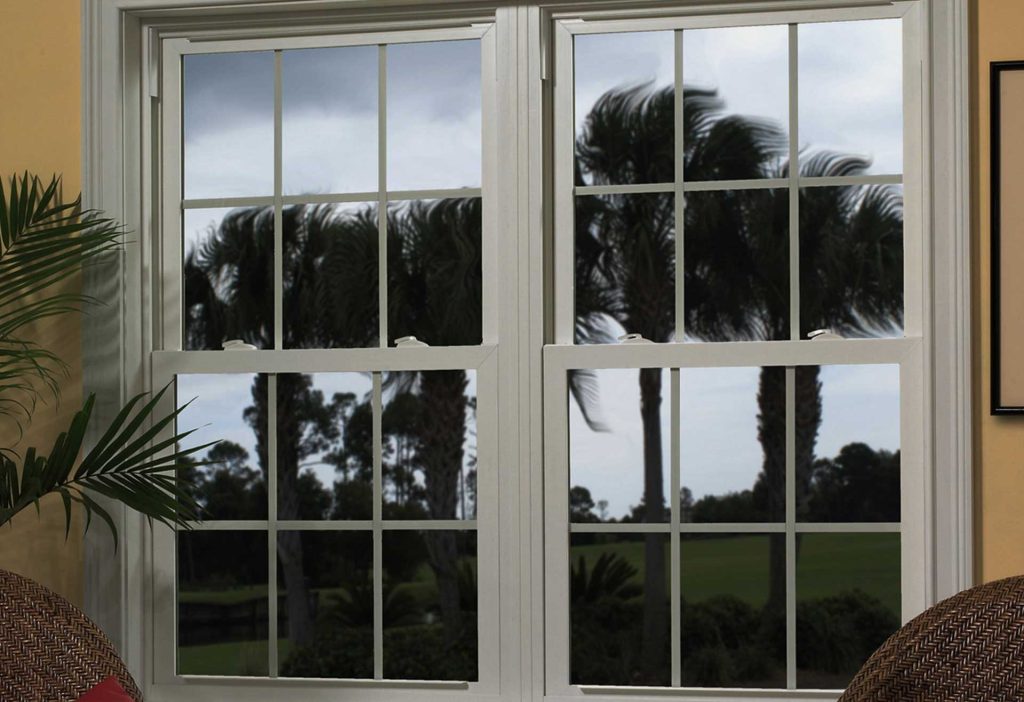
This image is property of floridawindowexperts.com.
